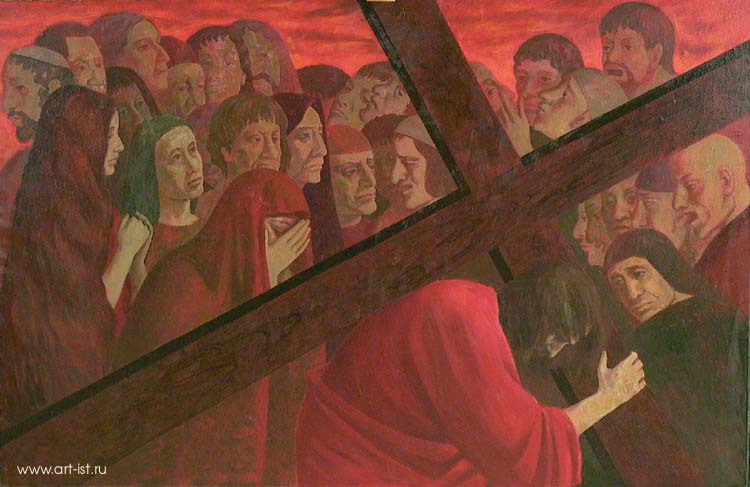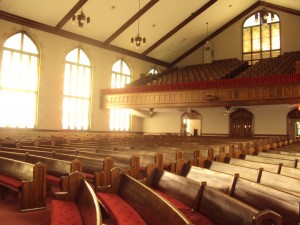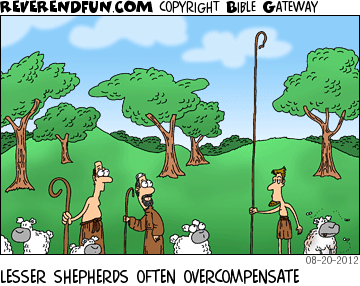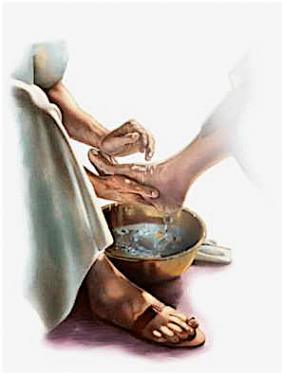I’m re-reading several parts of Norman Shawchuck and Roger Heuser’s book, Leading the Congregation, in advance of our elders / ministers retreat this weekend. I’m especially interested in chapter two: The Interior Attitudes of the Leader. A couple of days ago, I wrote a little bit about childlikeness in our spiritual leaders. Today, let’s consider the church leader as a pauper. A poor person.

“Blessed are the poor in spirit, for theirs is the Kingdom of Heaven.” ~Matthew 5:3
This is the first of the Beatitudes, those ideas and promises at the beginning of Jesus’ “Sermon on the Mount” that are intended to shape our thoughts and lives. Bonhoeffer says it’s not the actual poverty that is the virtue — there’s nothing good about being poor. Instead, it’s the willingness to be poor, it’s the desire to follow Christ at the risk of becoming poor, it’s embracing the call of Jesus knowing that you may very well lose everything. I’m obviously paraphrasing here. But, that’s the virtue. That’s the blessing.
Shawchuck and Heuser put another twist on it. They say that church leaders go into their roles, they accept their mantels of leadership, from a position of poverty. We know that when it comes to leading God’s people, we have nothing. We’re wholly inadequate. We can’t do this; and we know it. Inherent in our call to ministry is the realization that we are not by nature equipped to bear this burden of leadership that God has dropped in our laps. We always embrace our calling as paupers.
Now, personally, this one’s easy for me. I feel completely inadequate every single time I jump in the pulpit to preach. I’m terrified every single Sunday morning. Scared to death. The words of God are too powerful for me. Knowledge of him and his great love for us is too lofty for me to attain. I rarely ever feel like I’ve done our holy God justice. In the words of Augustine, I am saddened that my tongue cannot live up to my heart.
I’m not smart enough to teach these classes I’m supposed to teach. I’m not trained to counsel these brothers and sisters in Christ through their marital problems and addictions and depression. I’m not equipped at all to visit with parents who just lost their teenage daughter to cancer. I’m not able to adequately lead this church staff. I’m not prepared for any of this.
I know what that means to entirely lean on God for my ministry. It’s his; it’s not mine. I couldn’t even begin to do any of this without his power, his strength, his pushing and guiding and equipping. I have no competence on my own; it all belongs to and comes from God. I get that part of it. I understand fully that the apostle is staring right at me when he says, “Consider your own call… not many were wise by human standards, not many were powerful, not many were of noble birth (sorry, dad). But God chose what is foolish… what is weak. God chose what is low and despised in the world” (1 Corinthians 1:26-31).
Humility? Yeah, I guess. It’s the same; but different.
The authors move on to say that being a pauper, being poor in spirit as a church leader, means to actually desire this poor position. To be a faithful leader of God’s people means, in their view, to seek this poverty. Because that’s what our Lord did.
“It is hard to desire littleness and nothingness, obscurity and benign respect, in a world obsessed with possessions and positions. It is hard to choose a pauper’s station when everyone around us is scrambling for upward mobility. The temptation that afflicts us as leaders is not that of monetary wealth. Only a fool would choose a profession in the church if the goal were to become rich. Indeed, the ‘to be rich’ temptations among most clergy are not for money but for admiration, respect, adulation, prestige, and power. These are the riches that must be guarded against, if ever we are to experience the freedom of being poor in spirit. God means this poverty as a gift and blessing, not as a practical joke upon those whom God has chosen as leaders in the church.”
Downward mobility. (Did Nouwen coin that term?) The way of the cross is downward mobility. We empty ourselves of all desire for gain — monetary or otherwise — just like Jesus in order to take on the role of a lowly servant. Like our Lord, we move down to the bottom of the ladder, down the depth chart, giving up all power and position and prestige to seek the good of others.
This world draws hard lines between the winners and losers. We label everything as failure or success. No middle ground. What a difference is God’s way for us! His Word came down to us and lived among us in order to serve us. He became poor so that we, through his poverty, might become rich.
Bishop Walpole is credited with saying to a friend who was considering a call to ministry, “If you are uncertain of which two paths to take, choose the one on which the shadow of the cross falls.” That’s the way and the spirit of poverty, to which our Christ calls every Christian leader.
Peace,
Allan
 “Better safe than sorry” is probably a good philosophy if you’re a sky-diver or you make your living dismantling bombs. When wiring a house or feeding a lion or crossing a busy street, “better safe than sorry” makes perfect sense.
“Better safe than sorry” is probably a good philosophy if you’re a sky-diver or you make your living dismantling bombs. When wiring a house or feeding a lion or crossing a busy street, “better safe than sorry” makes perfect sense.







Recent Comments